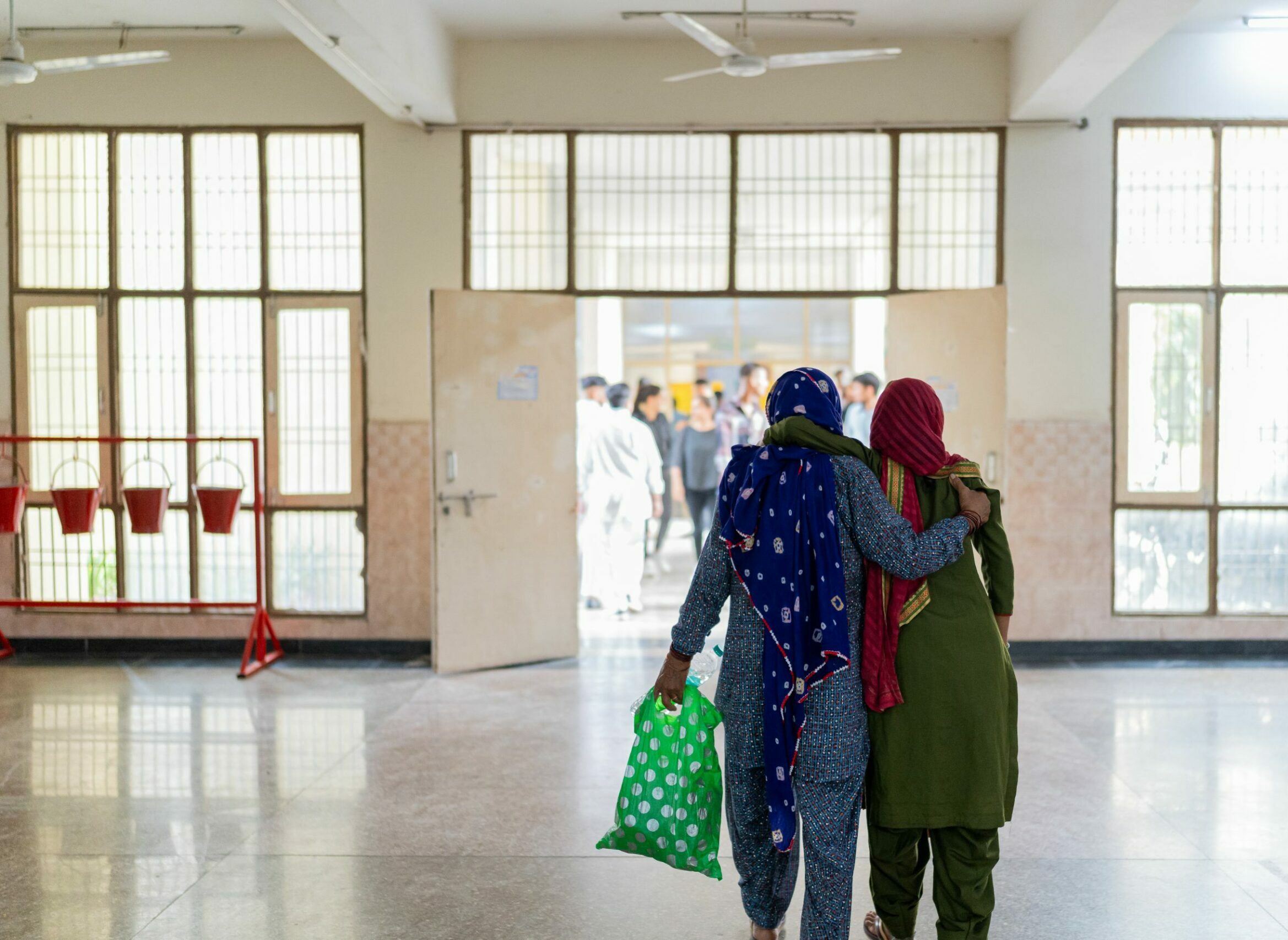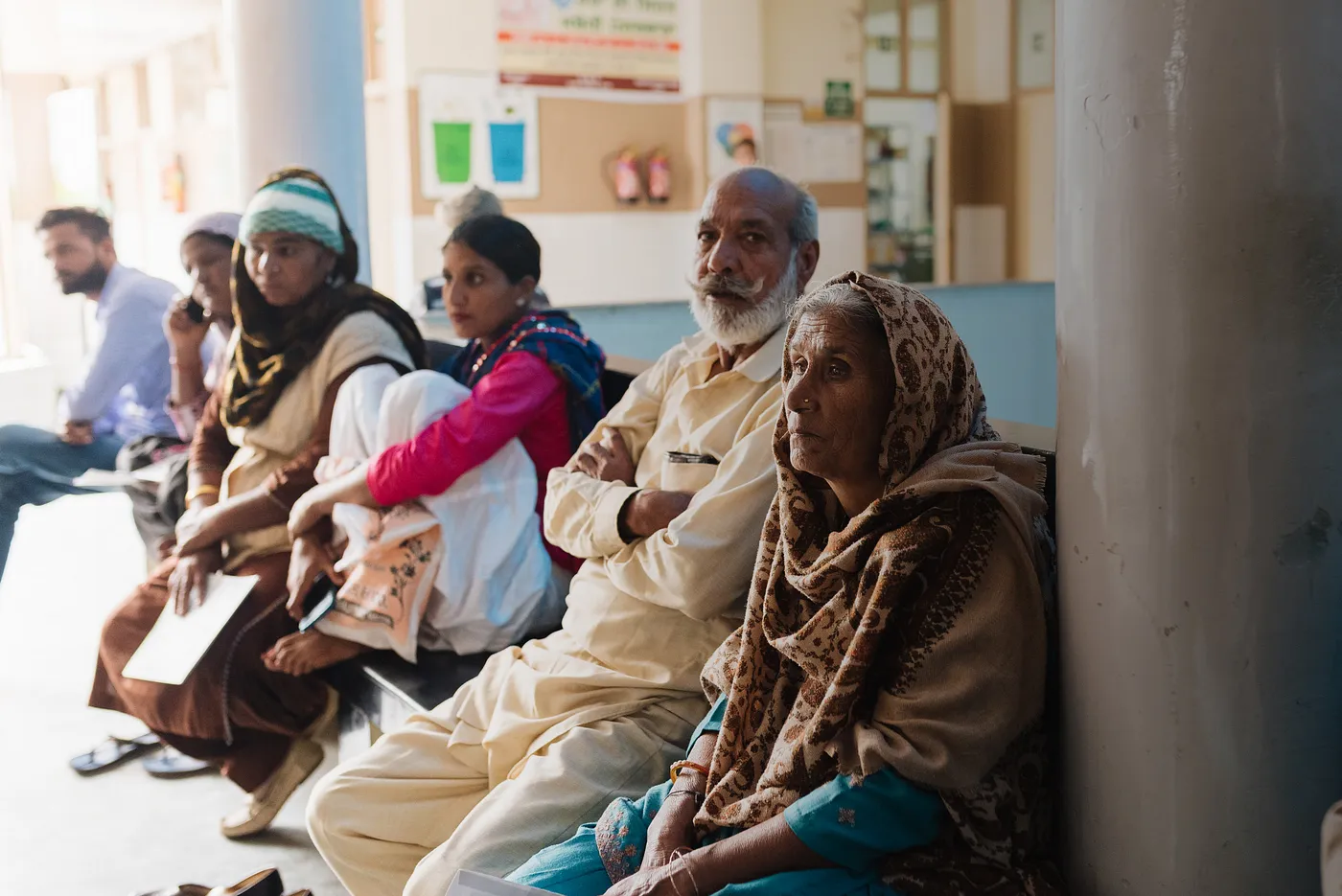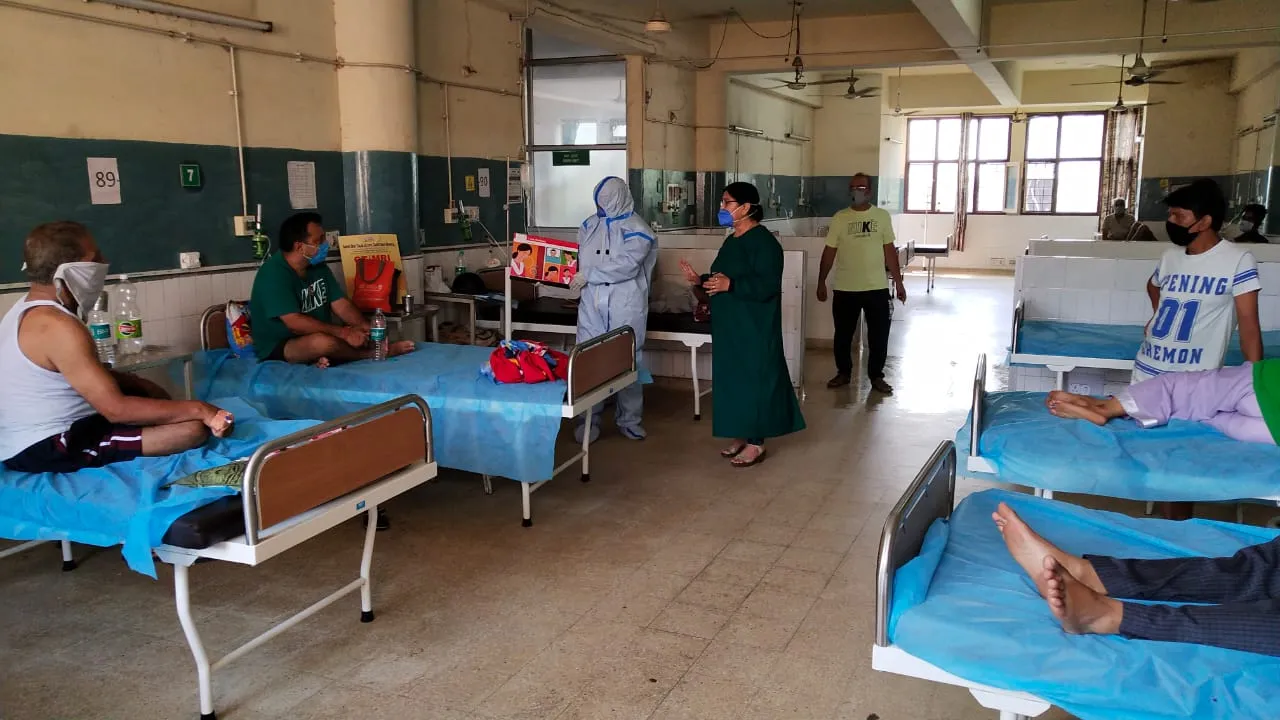

Prioritizing healthcare worker well-being during COVID-19
Four things we’re doing to support nurses through the pandemic.
India has become an epicenter of COVID-19 cases, reporting the most COVID-19-related daily deaths on the planet over the past several weeks. The consequences of this on the healthcare system are enormous. For months now, healthcare workers have faced ongoing and unprecedented challenges on a massive scale: daily increases in the number of admissions; shortages of hospital beds, well-trained staff, and ventilators; nonstop shifts in hot weather; and some staff being unable to eat, drink, or use the washroom so as not to contaminate PPE kits that were in short supply.
As rolling waves of cases continue to hit, bigger problems have emerged in the form of deteriorating mental health across healthcare staff and increased stigma surrounding the virus. At Noora Health, healthcare workers are integral to the success of our work; it is through them that behavior change programs are delivered to health systems. As designers and researchers, we see our work as a collaboration with hospital staff, creating training programs that are adaptable to their needs and responsive to changing circumstances. But when the circumstances start to feel insurmountable, it becomes even more important to ground our work in empathy and support.
Healthcare workers are concerned about their families’ mental health
From March through June 2020, we spoke with nurses across the district hospitals we partner with in India via our Care Companion Program to get a sense of their work on the front lines of the pandemic. Given stressful work environments, changing practices and policies, and a seemingly unending number of cases, healthcare workers reported feeling stressed not for themselves, but for their family members.
One hospital worker shared, “The only challenge I am facing is living away from family and my kids. I am going to have isolation duty again, and after that, I have to be quarantined. My family told me to quit the job instead of being away from them for so long.”
Healthcare workers take it upon themselves to take necessary precautions and preventive measures to prevent transmission at home which also brings significant stress.
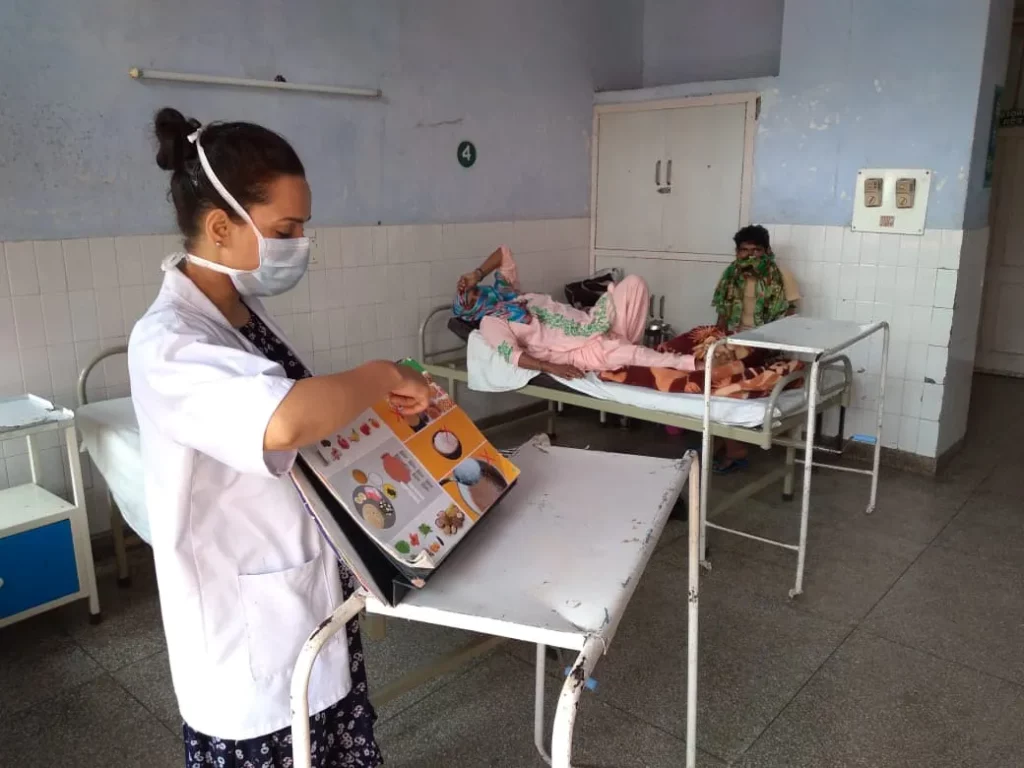
“Before COVID-19, we were living a normal routine life. But now after coming back from the hospital we directly go to the washroom for bathing and washing clothes without touching anything in the house. We leave our slippers outside the house, sanitize our hands, and only then can we touch our kids. No matter how much my child cries, I can’t touch him before going through this entire procedure,” added a nurse.
Another hospital worker shared, “I’m taking initiatives for my family. I go home wearing gloves. I also carry a disposal bag and keep things in it before entering the house. I discard the bag and sanitize myself, then enter. I taught infection control practices to my children — they wash their hands properly.”
Nurses also shared that they do a number of activities to manage their stress, such as teaching patients, keeping a sense of humor, and relying on their colleagues for support.
Four ways in which we’re starting from empathy
In order to keep nurses and healthcare workers mentally healthy, our team looked for opportunities for human connection, stress relief, and joy. Here are four types of things we’re doing to support nurses’ mental health:
1. Providing continued training and support
Although hospitals, government entities, and other organizations have provided training on new practices and on how to manage COVID-19 patients, healthcare workers voiced a need for additional training and support. In order to make the information more engaging, we developed an augmented reality-based training app to show how to use personal protective equipment while at hospitals. As we learned more about the virus, information about the best care for patients continued to change. And so, we provided ongoing digital training and a WhatsApp line dedicated entirely to healthcare workers, to ensure that they received the most up-to-date and evidence-based information possible.
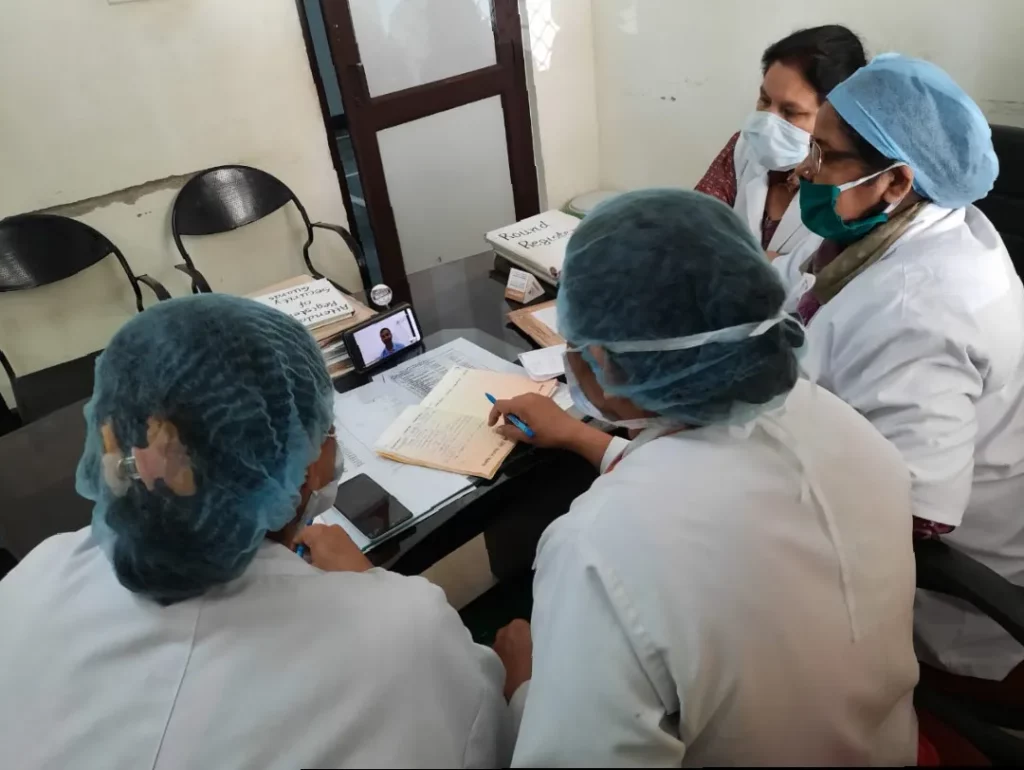
2. Showing that we care
Through the pre-existing WhatsApp groups that had been created for regular communication, we sent Care Companion Program trainers a series of activities. The digital puzzles and games served as helpful distractions from the pressures of their everyday work. Meditation and gratitude exercises helped them relax and rejuvenate for a few minutes, and dancing and storytelling helped them de-stress both individually and in groups. Realizing that nurses were feeling bored at times or needed a stress reliever, we developed ‘The Virus Warrior’, a game where players could kill off viruses on the screen.
3. Expressing gratitude at every chance possible
We made time to thank nurses and hospital staff for their hard work and to acknowledge how difficult the pandemic had made their jobs. On International Nurses Day 2020, we created a video with pictures of all Care Companion Program nurses and trainers, appreciating and thanking them for all the work that they do. This video was then shared across nurses’ WhatsApp groups. As part of one of the digital jigsaw puzzle activities we sent, the end result was a photograph of families expressing gratitude to the nurses.
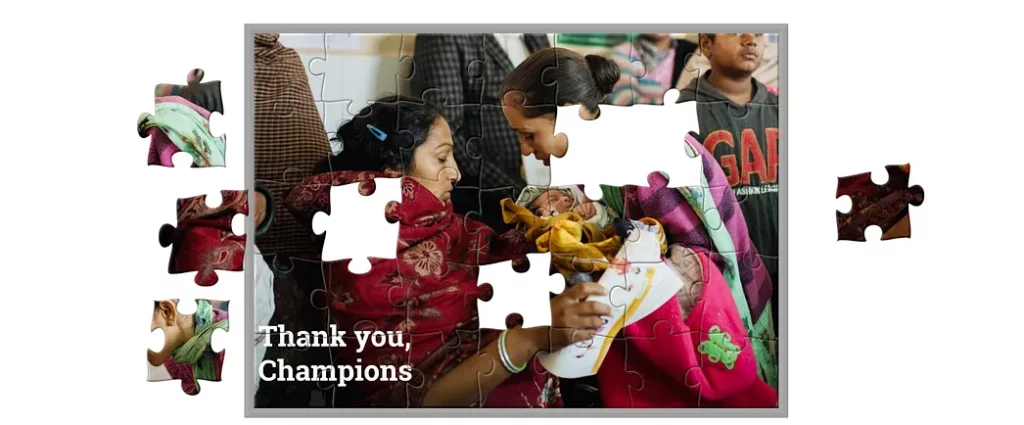
4. Creating moments of human connection
As we shift towards a more digital and physically distanced world, a key challenge remains in how we maintain human connection as much as possible. Even though our partners could not visit hospitals, we kept in touch with nurses by playing fun games that appreciated them.
“I felt that at least someone thought about us in the present scenario. I thank Noora Health for these activities. And I would like them to engage us in such activities in the future, too,” said a nurse at one of the district hospitals we collaborate with.
Healthcare workers are, by their very nature, resilient professionals. And yet, the ongoing challenges the pandemic continues to bring require that we do whatever it takes to keep their holistic well-being top of mind. As designers and researchers, it’s our responsibility to ensure that we prioritize their mental health and well-being before all else. Our collective health depends on it.
Dr. Divya Mishra, Dr. Huma Sulaiman, Nupoor Rajkumar, and Samina Rahman contributed to this article.
This article was originally published on Sep 23, 2020, and edited and updated in July 2023.


